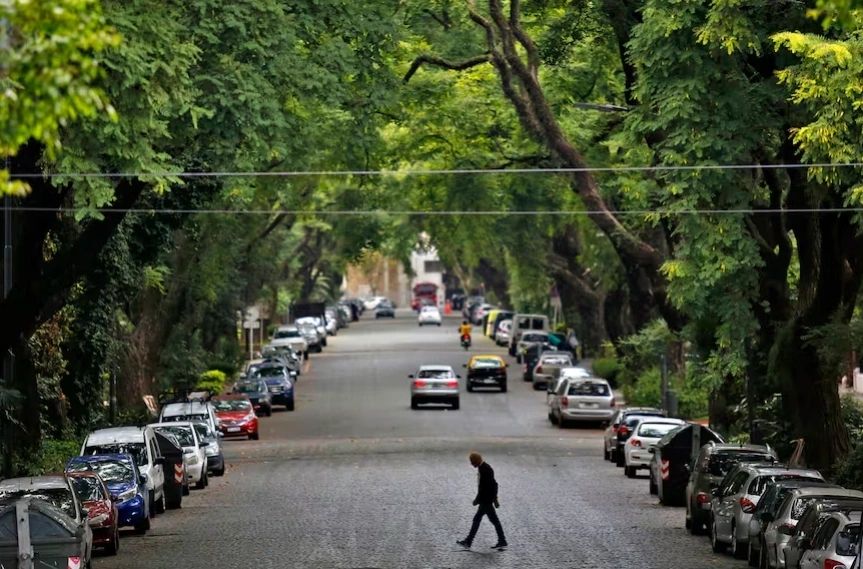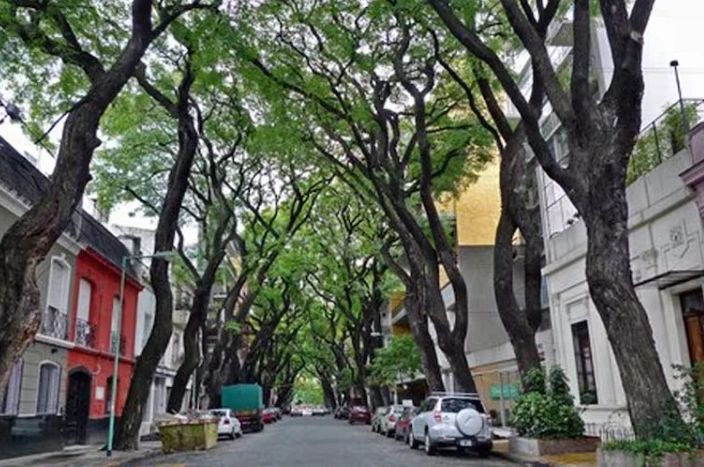BuySellBA
Administrator
Ranking: Which neighborhoods have the best quality of life in Buenos Aires? - La Nacion Propiedades

Source:

 www.lanacion.com.ar
www.lanacion.com.ar
October 27, 2025
According to different variables, Colegiales, Palermo, Belgrano and Recoleta are among the most prominent in the city.

Colegiales, Palermo, Belgrano and Recoleta are among the most prominent in the city. Emiliano Lasalvia - LA NACION
In a city as diverse as Buenos Aires , where more than 40 neighborhoods each have their own distinct identities, determining which ones offer the best quality of life is a complex task that requires evaluating multiple dimensions: safety, connectivity, infrastructure, services, and cultural and environmental offerings . Within this framework, and according to various sources, in addition to the "historic" neighborhoods of Palermo, Recoleta, and Belgrano , and the luxurious Puerto Madero, Colegiales is among those offering the best living conditions in the Argentine capital.
Considering variables such as the amount of green space per inhabitant, safety indices, accessibility to public transportation, the presence of educational and healthcare institutions, and the quality of the neighborhood environment, Colegiales stands out for its balance between residential tranquility and cultural dynamism . Despite being surrounded by high-density centers such as Palermo and Belgrano, it maintains a serene pace, with cobblestone streets, low-rise houses, and tree-lined squares that reinforce its neighborhood identity. Spaces such as Plaza Mafalda, the Flea Market, and a growing culinary offering make it a point of attraction for young people, families, and professionals who prioritize everyday well-being.
The history of Colegiales dates back to the colonial era, when it was part of a Jesuit estancia known as "La Chacarita de los Colegiales." Its name comes from the students of Colegio San Ignacio, who spent their vacations there. Today, this influence is reflected in a strong community identity, with art workshops, signature coffees, murals, and an active neighborhood life that reinforces the sense of belonging.
However, Colegiales isn't the only neighborhood to appear in quality of life rankings . Palermo remains one of the most comprehensive. Its large area allows it to offer diverse profiles: from quiet areas like Palermo Chico to vibrant areas like Palermo Soho and Hollywood . The presence of Tres de Febrero Park, the Botanical Garden, and the Japanese Garden provides one of the largest green areas per capita. Furthermore, its connectivity—with access to several subway lines, trains, bike paths, and avenues—makes it a strategic hub for urban mobility.

A postcard from the Palermo neighborhood. Archive
Recoleta and Belgrano also appear as notable options. Recoleta is characterized by its stately architecture, proximity to museums and galleries, and a well-established urban infrastructure. Belgrano , meanwhile, combines residential areas with shopping and educational centers and offers good connectivity to the rest of the city. Both neighborhoods are valued for their safety, cultural offerings, and quality services.
Puerto Madero , despite its modernity and exclusivity, lags behind when everyday experience and neighborhood fabric are prioritized over luxury or real estate value. Therefore, the combination of history, community, accessibility, and environmental quality positions Colegiales, for many, as the most balanced neighborhood to live in Buenos Aires in 2025.
www.buysellba.com

Source:

Ranking: ¿cuáles son los barrios con mejor calidad de vida de Buenos Aires?
De acuerdo con distintas variables, Colegiales, Palermo, Belgrano y Recoleta están entre los más destacados de la ciudad
October 27, 2025
According to different variables, Colegiales, Palermo, Belgrano and Recoleta are among the most prominent in the city.

Colegiales, Palermo, Belgrano and Recoleta are among the most prominent in the city. Emiliano Lasalvia - LA NACION
In a city as diverse as Buenos Aires , where more than 40 neighborhoods each have their own distinct identities, determining which ones offer the best quality of life is a complex task that requires evaluating multiple dimensions: safety, connectivity, infrastructure, services, and cultural and environmental offerings . Within this framework, and according to various sources, in addition to the "historic" neighborhoods of Palermo, Recoleta, and Belgrano , and the luxurious Puerto Madero, Colegiales is among those offering the best living conditions in the Argentine capital.
Considering variables such as the amount of green space per inhabitant, safety indices, accessibility to public transportation, the presence of educational and healthcare institutions, and the quality of the neighborhood environment, Colegiales stands out for its balance between residential tranquility and cultural dynamism . Despite being surrounded by high-density centers such as Palermo and Belgrano, it maintains a serene pace, with cobblestone streets, low-rise houses, and tree-lined squares that reinforce its neighborhood identity. Spaces such as Plaza Mafalda, the Flea Market, and a growing culinary offering make it a point of attraction for young people, families, and professionals who prioritize everyday well-being.
The history of Colegiales dates back to the colonial era, when it was part of a Jesuit estancia known as "La Chacarita de los Colegiales." Its name comes from the students of Colegio San Ignacio, who spent their vacations there. Today, this influence is reflected in a strong community identity, with art workshops, signature coffees, murals, and an active neighborhood life that reinforces the sense of belonging.
However, Colegiales isn't the only neighborhood to appear in quality of life rankings . Palermo remains one of the most comprehensive. Its large area allows it to offer diverse profiles: from quiet areas like Palermo Chico to vibrant areas like Palermo Soho and Hollywood . The presence of Tres de Febrero Park, the Botanical Garden, and the Japanese Garden provides one of the largest green areas per capita. Furthermore, its connectivity—with access to several subway lines, trains, bike paths, and avenues—makes it a strategic hub for urban mobility.

A postcard from the Palermo neighborhood. Archive
Recoleta and Belgrano also appear as notable options. Recoleta is characterized by its stately architecture, proximity to museums and galleries, and a well-established urban infrastructure. Belgrano , meanwhile, combines residential areas with shopping and educational centers and offers good connectivity to the rest of the city. Both neighborhoods are valued for their safety, cultural offerings, and quality services.
Puerto Madero , despite its modernity and exclusivity, lags behind when everyday experience and neighborhood fabric are prioritized over luxury or real estate value. Therefore, the combination of history, community, accessibility, and environmental quality positions Colegiales, for many, as the most balanced neighborhood to live in Buenos Aires in 2025.
www.buysellba.com

